










MUSIC & VISUAL ARTS
Explore compositions inspired by paintings and painters
The works of jazz legend Wayne Shorter, new at Schott
REIMANN & EÖTVÖS
Farewell to two of the greatest composers of our time


Dear Reader,
2024 marks the 250 th anniversary of the birth of Caspar David Friedrich, a painter representing German Romanticism. To celebrate, Christian Jost’s new work Eismeer, inspired by Friedrich’s work of the same name, will be premiered this summer at the Festspiele MecklenburgVorpommern.
Music and painting have always been inextricably linked and artists of both genres have greatly in uenced each other. Famous examples of music inspired by great paintings include Modest Mussorgsky’s Pictures at an Exhibition, Max Reger’s Four tone poems after Arnold Böcklin, Paul Hindemith’s Mathis der Maler, Luigi Nono’s La victoire de Guernica and countless others.
Am 5. September 2024 jährt sich der Geburtstag des berühmten romantischen Malers Caspar David Friedrich zum 250. Mal. Aus diesem Anlass wird Christian Josts neues Werk Eismeer, das von Friedrichs gleichnamigem Gemälde inspiriert ist, bei den Festspielen Mecklenburg-Vorpommern uraufgeführt.

In this issue, we would like to introduce works by contemporary composers that are in uenced by paintings and painters. We hope you enjoy this journey through a world of sound paintings, as if you were touring a museum.
Musik und Malerei sind seit jeher eng miteinander verbunden, und Künstler:innen beider Gattungen haben sich gegenseitig stark beein usst. Berühmte Beispiele für Musik, die von großen Gemälden inspiriert wurde, sind Modest Mussorgskys Bilder einer Ausstellung, Max Regers Vier Tondichtungen nach A. Böcklin, Paul Hindemiths Mathis der Maler sowie Luigi Nonos La victoire de Guernica und viele mehr.
In dieser Ausgabe möchten wir Werke zeitgenössischer Komponist:innen vorstellen, die von Bildern und Maler:innen beein usst wurden. Wir hoffen, dass Sie die Welt der Klanggemälde wie bei einem Museumsrundgang genießen.

Francis Bacon (1909–1992) The Papal Portraits
Mark-Anthony Turnage
Three Screaming Popes for large orchestra (1988–1989) 15’
Francis Bacon (1909–1992)
Blood on the Floor
Mark-Anthony Turnage
Blood on the Floor for four jazz soloists and large ensemble (1993–1996) 70’
Max Beckmann (1884–1950)
Lithograph series on the ‘Revelation of John’ / Lithographienfolge zur „Offenbarung des Johannes“
Benjamin Schweitzer Drohungen für Klarinette (auch Bassklarinette), Violine und Violoncello (2004) 14’
Heather Betts (*1962)
Mark-Anthony Turnage
Dispelling the Fears after a painting by Heather Betts for two trumpets and orchestra (1998) 16’
Hieronymus Bosch (~1450–1516)
Svatopluk Havelka Hommage à Hieronymus Bosch Symphonische Phantasie (1974) 15’
Arnold Böcklin (1827–1901) Villa am Meer
Nikolaj Kasanli
Villa am Meer
Fantasie nach dem Gemälde von Arnold Böcklin für großes Orchester (1913) 9’
Marc Chagall (1887–1985) La Solitude · Le Violoniste and others
Wilfried Hiller
Chagall-Zyklus für Klarinette und Kammerorchester (1993) 22’
Marc Chagall (1887–1985)
Thierry Pécou
Hop et Rats
Opéra jeune public pour voix d’enfant, soprano, fl ûte, clarinette, violoncelle, piano et dispositif sur un livret de David Martins 70’
Albrecht Dürer: Traumgesicht (1525)
Caspar David Friedrich (1774–1840) Die Lebensstufen
Michael Keprt V dál
(Ein Ruf von ferne) (1996)
Symphonische Dichtung nach dem Gemälde „Die Lebensstufen“ von Caspar David Friedrich für Orchester

Paul Delvaux (1897–1994)
Toru Takemitsu
To the Edge of Dream for guitar and orchestra (1983) 13’
Albrecht Dürer (1471–1528) Traumgesicht
Klaus Huber
„… inwendig voller Figur …“ auf Texte der Johannes-Apokalypse und von Albrecht Dürer für gemischten Chor (SATB, mehrfach geteilt) mit Soli, Tonband und Orchester (1970–1971) 24’
Caspar David Friedrich (1774–1840) Das Eismeer
Christian Jost Eismeer
➥ see page / siehe Seite
Cave painting
Cave of Swimmers, Gilf Kebir plateau of the Libyan Desert
Dobrinka Tabakova
Desert Swimmers for percussion and multi-track (2020) 5’
Cornelia Foss (*1931)
Toru Takemitsu In the Woods
Three pieces after a painting by Cornelia Foss for guitar (1995) 14’
Paul Gauguin (1848–1903)
D'où venons-nous? Que sommes-nous? Où allons-nous?
John Casken
Ia Orana, Gauguin for soprano and piano (1978) 17’

Théodore Géricault (1791–1824)
Le Radeau de la Meduse
Hans Werner Henze
Das Floß der Medusa
Oratorium für Sopran, Bariton, Sprechstimme, gemischten Chor (dazu neun Knaben, S/A) und Orchester (1968; revidierter Schluss 1990)
Dichtung von Ernst Schnabel 70’
Francisco de Goya (1746–1828)
El coloso
Alexander Goehr
Colossos or Panic
Symphonic Fragment after Goya for orchestra (1991–1992) 25’
Francisco de Goya (1746–1828) Los Caprichos
Hans Werner Henze
Los Caprichos
Fantasia per orchestra (1963) 20’
Francisco de Goya (1746–1828)
El sueño de la razón produce monstruos
Tatjana Komarova
Triptychon für Violoncello solo, Klavier solo und Violoncello und Klavier (1993) 10’
Kazimir Severinovich
Malevich: Suprematismus No. 56 (1936)
Matthias Grünewald (~1480–1530)
[Mathis Gothart Nithart] Isenheimer Altar
Paul Hindemith
Mathis der Maler
Oper in sieben Bildern (1934–1935) Text von Paul Hindemith 180’
Symphonie „Mathis der Maler“ für Orchester (1933–1934) 27’
Giotto di Bondone (1276–1337)
Frescoes on the life of Francis of Assisi in the church of Santa Croce, Florence
Paul Hindemith
Nobilissima Visione
Tanzlegende in 6 Bildern von Paul Hindemith und Léonide Massine (1938)
50’
Philip Guston (1913–1980)
Richard Ayres
No. 48 (night studio) for orchestra (2014–2015) 17’
Viktor Hartmann (1834–1873)
Modest Mussorgskij / Émile Naoumoff
Pictures at an Exhibition
The Piano Concerto
New orchestration and transcription by Émile Naoumoff (1991) 40’
Paul Heron (1920–1999)
Joe Duddell
Azalea Fragments for orchestra (2008) 5’
Indian miniature paintings
Anthony Gilbert Towards Asavari for piano and small orchestra (1978) 20’
 Francisco de Goya: El coloso (~1810)
Francisco de Goya: El coloso (~1810)
Anselm Kiefer (*1945) Sternenfall
Ryan Wigglesworth
Sternenfall for orchestra (2007) 9’
Paul Klee (1879–1940)
Das Vokaltuch der Kammersängerin Rosa Silber
Hans Werner Henze
Das Vokaltuch der Kammersängerin Rosa Silber
Exercise mit Strawinsky über ein Bild von Paul Klee (1950, rev. 1990)
Handlungsloses Ballett 18’
Paul Klee (1879–1940)
Lied des Spottvogels
Der bayerische Don Giovanni
Anno Schreier
Vier Skizzen für Harfe solo und kleines Orchester (2006) 10’
Kazimir Severinovich Malevich (1875–1935) Suprematismus No. 56
Peter Eötvös
Reading Malevich für Orchester (2017–2018) 20’
Medieval ‘momento mori’ paintings
Kenneth Hesketh
Graven Image for orchestra (2007) 13’
Michelangelo (1475–1564)
Madonna del Silenzio
John Casken
Madonna of Silence
A drama for trombone and orchestra (2017–2018) 24’
Joan Miró (1893–1983)
Le sourire des ailes fl amboyantes
Dobrinka Tabakova
The Smile of the Flamboyant Wings for string quartet (2019) 8’
Joan Miró (1893–1983)
Espiga de blat / Espiga de trigo
Dobrinka Tabakova
Ear of Grain for string quartet (2022) 8’
Edvard Munch: Young People on the Beach, from the Linde Frieze (1904)
Native Art
Painting from an artist from Paupunya, Australia
Toru Takemitsu I Hear the Water Dreaming for fl ute and orchestra (1987) 11’

Toru Takemitsu
Vers, l’arc-en-ciel, Palma for oboe d’amore, guitar and orchestra (1984) 15’
Paula Modersohn-Becker (1876–1907)
Peter Maxwell Davies
Das Rauschende der Farbe Refl ections on the life and work of Paula Modersohn-Becker for orchestra (2006) 30’
Giorgio Morandi (1890–1964)
Alexander Goehr
Quintet ‘Five Objects Darkly’ for bass clarinet, horn, violin, viola and piano (1996) 23’
Gustave Moreau (1826–1896)
John Casken
Tableaux des Trois Âges for orchestra (1976–1977) 18’
Edvard Munch (1863–1944)
Ungdom ved stranden
Naji Hakim
Fantasia on a painting by Edvard Munch (‘Young people on the beach’) for violine solo (2010) 4’
Pablo Picasso (1881–1973)
Volker David Kirchner
Der blaue Harlekin (Hommage à Picasso) Groteske für 8 Bläser (1981) 7’
Pablo Picasso (1881–1973) Guernica
Luigi Nono
La victoire de Guernica ➥ see page / siehe Seite
Bridget Riley (*1931)
Primitive Blaze
Daniel Kidane
Primitive Blaze for tenor saxophone, electric guitar and ensemble (2022) 10’
Egon Schiele (1890–1918)
Tatjana Komarova
Ungemalte Bilder für Streichquartett (2002) 20’
Louis Soutter (1871–1942)
Heinz Holliger
Konzert
„Hommage à Louis Soutter“ für Violine und Orchester (1993–1995/2002) 45’
Stanley Spencer (1891–1959)
The Resurrection of Soldiers · Separating Fighting Swans · Shipbuilding on the Clyde · The Crucifixion
Huw Watkins
Four Spencer Pieces for piano (2001) 15’
Mark Tobey (1890–1776)
Richard Ayres No. 8 for piano solo (1991) 7’
Hans Thoma (1839–1924)
Stille vor dem Sturm
Bertold Hummel
Stille vor dem Sturm
Sinfonische Dichtung nach einem Gemälde von Hans Thoma für großes Orchester (1973) 8’
J. M. W. Turner (1775–1851)
Series of sketches of Shakespeare’s house
Dobrinka Tabakova
Immortal Shakespeare for SATB choir and chamber orchestra (2016) 40’
Vincent van Gogh (1853–1890)
Julian Anderson
Van Gogh Blue for ensemble (2015) 22’
Henri Dutilleux
Correspondances pour soprano et orchestre (2002–2004) Textes de Rainer Maria Rilke, Prithwindra Mukherjee, Alexandre Soljénitsyne et Vincent van Gogh 22’
Vincent van Gogh (1853–1890)
De sterrennacht
Steve Martland
Starry Night for marimba and string quartet (2007–2008) 20’
Vincent van Gogh (1853–1890)
Strand bij Scheveningen in stormachtig weer · Sorrow · Agostina Segatori zittend in het Café du Tambourin · Le Café de nuit · De danszaal in Arles · L’église d'Auvers-surOise
Bernard Rands
Le Tambourin
Suites 1 and 2 for orchestra (1984) 26’
Alfred Wallis (1855–1942)
Richard Ayres
No. 37b for orchestra (2006) 20’
Jean-Antoine Watteau (1684–1721)
Les bosquets de Cythère
Jean Françaix
Les bosquets de Cythère
Sieben Walzer für Orchester (1946) 17’
Adolf Wölfl i (1864–1930)
Ingomar Grünauer
Die Schöpfungsgeschichte des Adolf Wölfl i
Musiktheater für sechs Sänger, Streichquintett und Schlagzeug (1981–1982) Libretto von Ingomar Grünauer
80’
Various Painters:
Dieter Schnebel
Museumsstücke I für bewegliche Stimmen und Instrumente in polyphonen Räumen (1992–1993)
50’
Dieter Schnebel
Museumsstücke II (MoMA) für bewegliche Stimmen und Instrumente (1994–1995)
60’
Michelangelo (1475–1564)
Rembrandt van Rijn (1606–1669)
Pablo Picasso (1881–1973)
Zdenek Lukás
Pocta tvurcum
Den Künstlern zu Ehren / Tribute to Creators
Zyklus für gemischten Chor mit Violine und Klavier / cycle of mixed chorus with violin and piano (1980)
Text von Václav Fischer
10’
Leonardo da Vinci (1452–1519)
Mona Lisa
Hieronymus Bosch (~1450–1516)
Der Garten der Lüste
Andrew Wyeths (1917–2009)
Christina’s World
Stephen Paulus
Voices from the Gallery for narrator and orchestra (1991)
30’
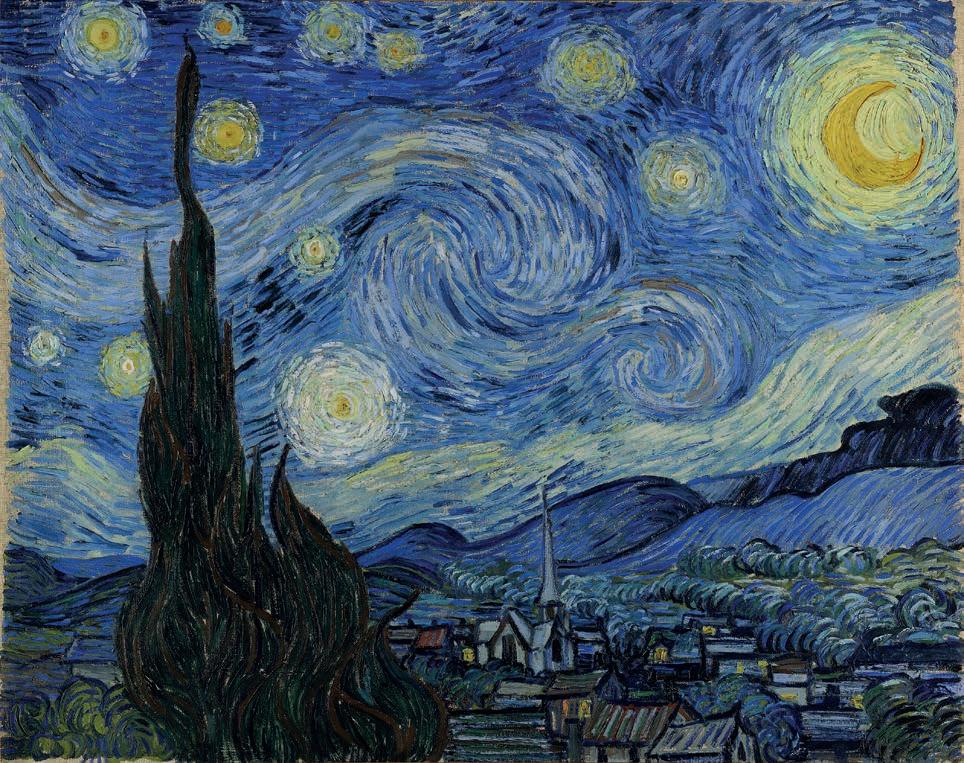

We are delighted to announce that Schott Music New York has signed a representation and distribution agreement with the Wayne Shorter Estate, making the influential jazz master‘s concert works readily available to orchestras and ensembles worldwide to perform. While well known as a brilliant tenor saxophonist and composer for Art Blakey’s Jazz Messengers, the Miles Davis Quintet, and most notably for his own Wayne Shorter Quartet, Shorter‘s concert works are of equal import and a major component of his creative output. Shorter (1933–2023) was honored with innumerable prestigious accolades during a career that spanned more than a half century, among them a Lifetime Achievement Award from the Herbie Hancock Institute of Jazz, a Grammy Lifetime Achievement Award, a Guggenheim Fellowship, a Polar Prize, the Kennedy Center Honors, and an honorary doctorate from the Berklee College of Music.
Schott wird zukünftig die Konzertwerke von Wayne Shorter vertreiben. Der Wayne Shorter Estate und Schott Music haben jüngst eine entsprechende Vereinbarung getroffen. Dadurch werden die Kompositionen des einflussreichen Jazzmusikers für Orchester und Ensembles auf der ganzen Welt leicht zugänglich sein. Obwohl Shorter vor allem als brillanter Tenorsaxophonist und Komponist für Art Blakey‘s Jazz Messengers, das Miles Davis Quintet und das Wayne Shorter Quartet bekannt ist, sind seine Konzertwerke ebenso bedeutsam und ein wichtiger Bestandteil seines kreativen Schaffens. Shorter (1933–2023) wurde während seiner mehr als ein halbes Jahrhundert umfassenden Karriere mit unzähligen prestigeträchtigen Auszeichnungen geehrt. Darunter ein Lifetime Achievement Award des Herbie Hancock Institute of Jazz, ein Grammy Lifetime Achievement Award, ein Guggenheim-Stipendium, der Polar Music Prize, die Kennedy Center Honors und ein Ehrendoktortitel am Berklee College of Music.
Toshio Hosokawa will serve as Composer in Residence of the Orquesta de Valencia for the 2024/25 season with several concerts featuring his music across the season. The current Artistic and Chief conductor for the orchestra, Alexander Liebreich, has conducted many of Hosokawa’s pieces including the Austrian and Polish premieres of his violin concerto Genesis, which will also feature as part of the residency with Veronika Eberle as a soloist.
Toshio Hosokawa wird in der Saison 2024/25 Composer in Residence des Orquesta de Valencia. Während der Saison sind mehrere Konzerte mit seiner Musik geplant. Der künstlerische Leiter und Chefdirigent des Orchesters, Alexander Liebreich dirigiert seit vielen Jahren Werke Hosokawas, zuletzt die österreichische und polnische Erstaufführung des Violinkonzerts Genesis, das auch im Rahmen der Residenz mit Veronika Eberle als Solistin aufgeführt wird.
In May, Heinz Holliger was awarded the Alban Berg ring, a prize initiated by the Alban Berg Foundation to honour individuals who have rendered services nurturing the works of the composer. The award consists of a ring into which a soundtrack featuring the music of Berg has been cast.
Heinz Holliger wurde im Mai mit dem Alban-Berg-Ring ausgezeichnet. Der Preis wurde 2021 von der Alban Berg Stiftung ins Leben gerufen, um Persönlichkeiten, die sich um das Werk des Komponisten verdient gemacht haben, zu ehren. Verliehen wird ein Ring, in den eine Tonspur mit Musik von Berg eingegossen ist.
Atsuhiko Gondai
Au-delà de Sol-La for string quartet 17’
6 Jun 2024 | Sapporo (J)
Sapporo Concert Hall Kitara Quartet Excelsior
Commissioned by Quartet Excelsior
Thomas Larcher Unerzählt for baritone and piano
Text by W. G. Sebald (Ger.) 20’
9 Jun 2024 | Snape (UK)
Britten Studio
Andrè Schuen, baritone
Julius Drake, piano
Commissioned by Jennifer Roslyn Wingate
Ryan Wigglesworth Glasharmonie
after Mozart’s Adagio in C, K.356 for solo piano 8’
11 Jun 2024 | Snape (UK)
Snape Maltings Concert Hall
Ryan Wigglesworth, piano
Commissioned by Britten Pears Arts
Christian Jost
Lontano doloroso
für Englischhorn und Orchester 18’
12 Jun 2024 | Biel (CH)
Kongresshaus
Dominik Wollenweber, cor anglais
Sinfonie Orchester Biel Solothurn
Yannis Pouspourikas, conductor
Over the course of a life as a composer, the compositional ideal ‘less is more’ resurfaces intermittently. Some works are not at all interested in this maxim and others are magically attracted by the concept of paring down to bare essentials. My Lontano doloroso for cor anglais and orchestra is one of these works in which even the solo instrument only represents a vision of the solo concerto genre, being composed exclusively for its expressivity rather than virtuosity. The orchestral forces featuring two horns, two clarinets, strings and a vibraphone also speak a highly concentrated language. Expressivity is entirely focused on somewhere far away. This is music with a focus on melancholic grief and an essence of extended, empathetic lines leading to a point of contact with the cumulative orchestral harmonies. Christian Jost
Im Laufe eines kompositorischen Lebens, erscheint in unregelmäßigen Abständen immer wieder das kompositorische Ideal von „weniger ist mehr“. Manche Werke interessieren sich nicht im geringsten hierfür und manche ziehen das Ideal der totalen Essenz geradezu magisch an. Mein Lontano doloroso für Englischhorn und Orchester ist ein solches Werk, bei dem selbst das Soloinstrument nur eine Vision der Gattung eines Solokonzertes dar-

stellt, so sehr ist es auf Ausdruck und nicht auf Virtuosität komponiert. Die Orchesterbesetzung mit zwei Hörnern, zwei Klarinetten, Streichern und einem Vibraphon spricht ebenso eine Sprache der Essenz. Dabei ist die Richtung des Ausdrucks eine, die in weiter Ferne liegt. Eine Musik, deren Fokus ein melancholischer Schmerz ist und deren Gestus mit gedehnt-empathischen Linien und mit sich orchestral-steigernden Harmonien auf Berührung zielt. Christian Jost 0 · 0 · 2 · 0 - 2
- Vibr. - Str.
Auftragswerk von Theater Orchester Biel Solothurn und den Bochumer Symphonikern
Daniel Kidane
Mechanics of Power for trombone, percussion and guitar 8’
15 Jun 2024 | Rotterdam (NL)
European Trombone Festival
Slide Factory Jörgen van Rijen and friends
Commissioned by Jörgen van Rijen
Thierry Pécou
O Future
Chamber opera
Libretto by Alice Kudlak (Eng./Fr.) 60’
18 Jun 2024 | Caen (F)
Théâtre de Caen
(Performance for students)
19 Jun 2024 | Caen (F)
Théâtre de Caen
(First public performance)
Olivier Opdebeeck, conductor Alice Kudlak, staging Bernard Kudlak, staging San Francisco Girls Chorus La Maîtrise de Caen
Ensemble Variances
O Future is a militant work. Two groups of young people meet up, one from San Francisco and the other from Caen in Normandy. It is no longer sufficient to establish what damage human beings have wrought on the earth, but what to do about it! The youngsters seek advice from great but forgotten words of wisdom which teach us about the necessity of living in harmony with the environment, for example
the mythology of the Toltecs, Zoroastriansim and a San legend from South Africa. Two large choirs and their soloists, accompanied by a small ensemble, interact with a score permeated with traditional music: rhythmic African polyphony, gamelan, flamenco, all within the context of an increasing tension which ultimately leads to the dramatic question: ‘Oh my future, where have you gone?’
Thierry Pécou
O Future ist ein militantes Werk. Zwei Gruppen von Jugendlichen, eine aus San Francisco, die andere aus Caen in der Normandie, treffen sich. Es geht nicht mehr darum, die von der Menschheit auf der Erde angerichteten Schäden zu konstatieren, jetzt muss gehandelt werden! Die Kinder ziehen große vergessene Weisheiten zu Rate, die uns die Notwendigkeit lehren, in Harmonie mit der Umwelt zu leben, wie die Mythologie der Tolteken, den Zoroastrismus oder eine San-Legende aus Südafrika. Zwei große Chöre und ihre Solisten, begleitet von einem kleinen Ensemble, interagieren entlang einer Partitur, die von traditioneller Musik durchdrungen ist: rhythmische afrikanische Polyphonie, Gamelan, Flamenco, alles im Rahmen einer zunehmenden Spannung, die schließlich zu der dramatischen Frage führt: „Oh meine Zukunft, wohin bist Du gegangen?“ Thierry Pécou
1S. · 1A. - Mädchenchor · Knabenchor
1 (auch Altfl.) · 0 · 1 (auch Bassklar.) · Altsax. (auch Sopransax.) · 0 - S. (1 Spieler) - E-Piano (auch E-Orgel) · E-Git. (auch Kazoo) · Str. (1 · 0 · 0 · 1 · 1) (alle auch Kazoo)
Commissioned by Théâtre de Caen
Wilfried Hiller
Apokalypse
Ein klingendes Mosaik für Koloratursopran, Countertenor Johannes von Patmos und Vokalquartett (2TBarB), Klarinette (auch Bassklarinette), Violine, Harfe, Celesta, Klavier und Schlagzeug
Text von Stefan Ark Nitsche unter Verwendung der Apokalypse-Übersetzungen von Martin Luther und Walter Jens (dt.) 70’
2 Jul 2024 | Nürnberg (D) St. Sebald
Johannes Euler, countertenor · Anna-Lena Elbert, coloratura soprano · die Singphoniker · Oliver Klenk, clarinet · Franziska Strohmayr, violin · Carl Amadeus Hiller, percussion ·

Thomas Sporrer, percussion · Takuya Taniguchi, percussion · Berno Scharpf, celesta · Tanja Huppert, piano · Irmgard Gorzawski, harp
The prophet John of Patmos is meditating surrounded by scrolls, academic tomes, newspapers, flickering screens and loudspeakers: he is bombarded by thousand-year-old interpretations of the world and current news bulletins. ‘Where were you, God?’ he cries. ‘Where are you, human being?’ is the response. The music illustrates the responsibility of human beings for the Creation and that of which nothing can be known, but much hope is invested in, and of which one cannot speak but only hear: beyond the end, there is a new beginning. The mystery of life remains while the vocalisations of the angelic voices waft through the air. Stefan Ark Nitsche
Der Seher Johannes von Patmos meditiert inmitten von Schriftrollen, gelehrten Büchern, Zeitungen, flackernden Bildschirmen und Lautsprechern: Jahrtausende alte Weltdeutungen und aktuelle Nachrichten strömen auf ihn ein. „Wo warst du, Gott?“, schreit er. „Wo bist du, Mensch?“, hört er. Die Musik erzählt von der Verantwortung des Menschen für die Schöpfung und von dem, wovon man nichts wissen kann, aber vieles erhoffen, wovon man nicht reden kann, aber hören: Jenseits des Endes ist Neues. Das Geheimnis des Lebens bleibt, die Vokalisen der engelsgleichen Stimme verschweben im Raum. Stefan Ark Nitsche
Christian Jost
In meinen Träumen läutet es
Sturm
Drei Lieder nach Gedichten von Mascha Kaléko (dt.) für Sopran und Klavier 12’
6 Jul 2024 | Bad Kissingen (D)
Kissinger Sommer
Arkadenbau, Rossini-Saal
Katrīna Paula Felsberga, soprano
Auftragswerk des Kissinger Sommers
Julian Anderson
Nothing At All
A dramatic madrigal for 8 unaccompanied voices
Text from the Noh-play Hagoromo by Zeami Motokiyo retold by Paul Griffiths (Eng.) 10’
10 Jul 2024 | London (UK)
Wigmore Hall
The Cardinall’s Musick
Gregory Spears
The Righteous
An opera in two acts Libretto by Tracy K. Smith (Eng.) 150’
13 Jul 2024 | Santa Fe, NM (USA)
The Santa Fe Opera
Jordan De Souza, conductor
Kevin Newbury, staging
The Righteous, with an original libretto by my frequent collaborator Tracy K. Smith, is an evening-length work that spans 12 years of American history (1979–1990). The opera tells the story of David, a preacher and leader of a growing church who finds himself caught up in the confluence of religion and politics in the 1980s, alongside contemporary events including the rise of feminism, the war on drugs, conflict in the Middle East, and the AIDS epidemic. Throughout the narrative we see how a feeling of being called to serve God can be so easily influenced by human frailty and desire.
Gregory Spears
The Righteous (Die Gerechten), nach einem Originallibretto von Tracy K. Smith, mit der ich regelmäßig zusammenarbeite, ist ein abendfüllendes Werk, das zwölf Jahre amerikanische Geschichte umspannt (1979–1990). Die Oper erzählt von David, einem Prediger und Oberhaupt einer wachsenden Kirche, der in den 1980er Jahren in die Verflechtungen von Religion und Politik gerät und mit Ereignissen wie dem Aufkommen des Feminismus, dem Krieg gegen Drogen, dem Konflikt im Nahen Osten sowie der AIDS-Epidemie konfrontiert

wird. Im Laufe der Handlung wird deutlich, wie leicht das Gefühl, Gott dienen zu müssen, von menschlicher Schwäche und Begierde beeinflusst werden kann. Gregory Spears
6S · 2Mez · 1Ct · 2T · 3BBar · 2Bar - choir (SATB)
2(sop/alto rec).2.2.2-4.3.2+1btbn.1-timp. 2perc-hp-str
Commissioned by the Santa Fe Opera
Vijay Iyer
New Work for chamber ensemble 20’
26 Jul 2024 | Norfolk, CT (USA)
Norfolk Chamber Music Festival
Norfolk Chamber Music Festival Musicians
Commissioned by the Norfolk Chamber Music Festival
Christian Jost Eismeer
Konzertante Dichtung in drei Sätzen nach dem Gemälde „Das Eismeer“ von Caspar David Friedrich für Saxophonquartett, Vibraphon und Streichorchester 23’
26 Jul 2024 | Greifswald (D) Festspiele Mecklenburg-Vorpommern
Dom St. Nikolai
SIGNUM saxophone quartet Zürcher Kammerorchester
Christian Jost, conductor
What is the sound of Caspar David Friedrich? This was the question posed by the city of Greifswald on occasion of the 250 th anniversary of the painter’s birth. While Christian Jost was examining Friedrich’s paintings, his attention was drawn to one in particular: Das Eismeer [The Sea of Ice]. ‘This is it,’ he thought. ‘Just the right thing, with its coldness, which can also be evoked by the metallic sound of
saxophones. As an opera composer, I am captivated by the drama of the image. The wrecked ship must have a tragic story, which precedes its portrayal. Since I am interested in the transformation of imagination into sound, I would like to tell this story in my music.’ (Christian Jost)
Wie klingt Caspar David Friedrich? Das ist die Frage, die sich die Stadt Greifswald zum 250. Geburtstag des Malers stellte. Während Christian Jost sich mit dessen Gemälden befasste, blieb sein Blick an einem besonderen Werk hängen: Das Eismeer. „Das war das erste, bei dem ich dachte: ,Das ist es! Genau das Richtige, mit seiner Kälte, die auch ein metallischer Saxophonsound hervorrufen kann.‘ Als Opernkomponist fesselt mich die Dramatik des Bildes. Was für eine Geschichte es rund um das zerborstene Schiffswrack gegeben haben muss! Eine große Tragödie eilt der Darstellung voraus und da mich die Umsetzung von Imagination in Klang interessiert, möchte ich genau davon erzählen.“ (Christian Jost)
Auftragswerk der Festspiele MecklenburgVorpommern und der Universitäts- und Hansestadt Greifswald anlässlich des CasparDavid-Friedrich-Jubiläums 2024
Andrew Norman
A Trip to the Moon
A melodrama for children
inspired by Georges Méliès’s silent film ‘A Trip to the Moon’ (1902)
Chamber version in English language
Words and music by Andrew Norman (Eng./ Moonish)
50’
30 Jul 2024 | Stokenchurch (UK)
Garsington Opera
Douglas Boyd, conductor
Karen Gillingham, staging
0.0.0.0-0.2.2.0-1perc-str(4vn.2va.2vc.1db)
11 Aug 2024 | Frankfurt/Main (D)
Young Ensemble Academy
Ensemble Modern
Commissioned by Ensemble Modern
Enjott Schneider
Hoketus
aus dem Zyklus „Jubilus“
Erweiterte Fassung für zwei Trompeten, zwei Posaunen, Pauke und Orgel
18 Aug 2024 | Luzern (CH)
KKL
Lucerne Festival
Soloists of the Lucerne Festival Orchestra
Raymond Curfs, timpani
Reinhold Friedrich, conductor
Atsuhiko Gondai
Lachrimae, or 5 Teares for harpsichord and orchestra
20’
30 Aug 2024 | Nagoya (J)
Aichi Prefectural Art Theater
Mahan Esfahani, cembalo
Aichi Chamber Orchestra
Kazufumi Yamashita, conductor
The piece is filled with a ‘falling tear’ motif consisting of four descending tones, sung as ‘Flow, my tears’. The number five comes from this descending four-note motif plus one additional note added as a landing and accumulation point, making it a motif consisting of five notes. The piece is part of a series of requiems that began with my violin concerto Strings between Time & Eternity (2023). The Violin Concerto was a prayer to God for the eternal rest of the dead, whilst this piece is a personal expression of inner feelings, with emotions and tears flowing from the tips of the ten fingers of the harpsichord player. Atsuhiko Gondai
Lachrimae, or 5 Teares ist von dem Motiv „fließende Träne“ durchsetzt, das aus vier absteigenden Tönen besteht und als Landeund Akkumulationspunkt eine zusätzliche Note aufweist, auf die sich die Zahl Fünf im Titel bezieht. Das Stück ist Teil einer RequiemReihe, die mit meinem Violinkonzert Strings between Time & Eternity (2023) begann. Während das Violinkonzert einem Gebet an Gott für die ewige Ruhe der Toten entspricht, ist Lachrimae, or 5 Teares ein persönlicher Ausdruck innerer Gefühle, bei dem Emotionen und Tränen aus den Spitzen der zehn Finger des Cembalisten fließen. Atsuhiko Gondai
Katherine Balch
New work
for open instrumentation in response to Charles Ives’s ‘Central Park in the Dark’
20’
2(1&2 picc).2.2.2-2.2.1.0-2perchp-8.6.6.4.3
Commissioned by Aichi Chamber Orchestra
für Erzähler, Kinderchor und Orchester
Text von Eduardo Moyano
Deutsch von Christiane Lebsanft
30’
World Premiere: 3 Feb 2019 | Chemnitz (D)
Opernhaus
Christine Gabsch, narrator
Robert-Schumann-Philharmonie Chemnitz
Alina Slobodian, conductor
Recording:
‘El Nino Quel Sono La Musica’
Iñaki Gabilondo, narrator
Decca Records
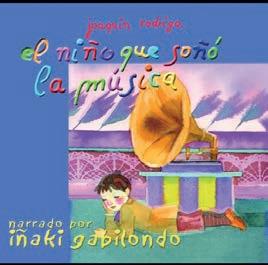
Joaquín Rodrigo lost his sight after contracting diphtheria as a child and was particularly dependent on his sense of hearing. Das Kind, das die Musik erträumte [The Boy who Dreamed the Music] presents the life story of the famous composer. Excerpts from Rodrigo’s works are heard during the performance, including the famous Concierto de Aranjuez for orchestra and guitar which perfectly evokes the Baroque castle gardens of Aranjuez with the perfume of magnolias, the twittering of birds and the splashing of fountains. This work acquaints children with one of the major Spanish composers of the 20th century who never gave up. Rodrigo died 25 years ago on 6 July 1999.
Joaquín Rodrigo verlor als Kind sein Augenlicht durch Diphtherie und war seitdem in besonderer Weise auf seine Ohren angewiesen. Das Kind, das die Musik erträumte erzählt die Lebensgeschichte des berühmten Komponisten. Im Konzert erklingen Ausschnitte aus Rodrigos Werken, wie zum Beispiel das berühmte Concierto de Aranjuez für Orchester und Gitarre. Man sieht darin förmlich die barocken Schlossgärten von Aranjuez, riecht den Magnolienduft, hört das Vogelgezwitscher und die plätschernden Brunnen. Mit dem Werk lernen Kinder einen der wichtigsten spanischen Komponisten des 20. Jahrhunderts kennen, der nie aufgegeben hat. Rodrigo starb vor 25 Jahren, am 6. Juli 1999.

Established in 1945, Polskie Wydawnictwo Muzyczne (PWM Edition) boasts a wide publishing offer consisting of works of early and contemporary music, both from Polish and world repertoire. Their Catalogue includes publications of a pedagogical, scientific and popular nature, as well as an extensive selection of books and CDs – the latter produced by their own phonographic brand ANAKLASIS.
Since 2017, PWM Edition has been lead by Director – Editorin-Chief Daniel Cichy, PhD – musicologist, music publicist, culture manager and editor.

One of PWM Edition’s flagship initiatives is The Heritage of Polish Music – a joint venture with Fryderyk Chopin Institute (NIFC), which aims to promote Polish composers of the Partition period (1772–1918). As part of the project, PWM publishes sheet music encompassing the period’s most valuable works. Both critical and performance editions are backed by comprehensive, source-based research.
PWM’s materials, marked with the distinctive yellow logo, are used by the youngest students of the musical arts, renowned artists, orchestras, lecturers and many music lovers alike.

Maria Szymanowska was a pianist, composer and the first woman in Europe to become a professional musician. She introduced the genre of the etude in Poland; her works accentuate the role of virtuosity and the development of pianistic technique in didactic and concert practice. PWM Edition’s Catalogue offers an assortment of Szymanowska’s works for piano, including a critical edition of Twenty Etudes and Preludes

Compared to Chopin in terms of talent, Zarębski produced a relatively limited number of works, which seem to merely hint at his full potential as a composer –a potential thwarted by his premature death. His musical language evokes Chopin and Liszt as sources of inspiration, the latter of whom was his tutor and heartfelt friend.
On the 170th anniversary of Zarębski’s birth, PWM Edition presents a noteworthy selection of his most established works, including his greatest musical accomplishment – Piano Quintet in G minor op. 94, dedicated to Liszt.
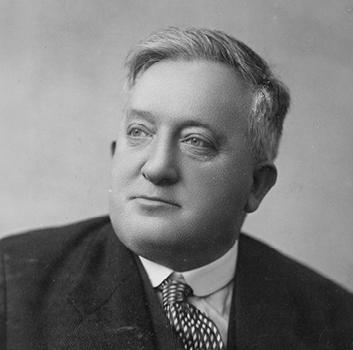
One of the most renowned Polish composers of the turn of the 20th century. A pupil of Engelbert Humperdinck, he penned eight excellent operas (such as Eros and Psyche and Casanova), as well as Pan Twardowski – the first Polish large-scale ballet to be performed abroad. PWM Edition’s Catalogue features an extensive range of Różycki’s compositions, including masterful violin works, rich and diverse piano repertoire as well as compelling art songs, suitable for intermediate and advanced students, and professional musicians alike.


A member of the modernist Young Poland movement, Szymanowski is regarded as one of the greatest Polish composers of all time. His distinctive musical style evokes the influences of Wagner, Reger and Scriabin, Debussy’s and Ravel’s impressionism, as well as Polish folk music. Szymanowski is a prominent figure in PWM Edition’s Catalogue; the Complete Edition of his works – with critical commentary in English and German – is one of their flagship series. Among the newest additions is the full transcription of the folklore-inspired balet Harnasie for two pianos, by Joanna Domańska.


“My music is a correspondance of art and history.”

15 Oct 2022 | Donaueschingen (D) was written
2019. It consists of 29 variants of the two al ternating chaconnes, one identified by harp and piano (with strings and percussion), and the other darker with alto flute, bass clari net, horn and double bass. Later in the piece, the two combine and overlap. Why Gaps? I am fascinated by the way the Japanese artist Hokusai, in his late work, began with a space on the blank paper and defined it with shape and image. Here, silence and sound transpose
Alexander Goehr
Mikis Theodorakis

intersect, but keep on getting lost for lack of direction and then dissolve, like paths that lead nowhere. Detlev Müller-Siemens
Concerto for tenor saxophone and orchestra
wurde 2019 ge schrieben. Es besteht aus 29 Varianten zweier alternierender Chaconnes, die eine gekenn zeichnet durch Harfe und Klavier (mit Strei chern und Schlagzeug), die andere dunkler mit Altflöte, Bassklarinette, Horn und Kontrabass. Im Laufe des Stücks werden die beiden kombiniert und überlagern sich. Warum Lü cken (gaps)? Mich fasziniert die Art und Wei se, wie der japanische Künstler Hokusai im Spätwerk mit einem Raum auf leerem Papier begann und ihn mit Form und Bild definier te. In meinem neuen Werk setzen Stille und Alexander Goehr
100th Birthday on 25 July 2025

afl.bcl-hn-perc-hp.pno-str(1.0.1.0.1)
Commissioned by Südwestrundfunk
Naji Hakim
70th Birthday
Toshio Hosokawa 70th Birthday
Enjott Schneider
75th Birthday
Alvin Singleton 85th Birthday
„Subsong“ ist ein ornithologischer Fachterminus und bezeichnet eine Art des Vogelgesangs, der noch nicht strukturiert ist und nicht im Zusammenhang mit gattungsspezifischen Territorialgesängen oder Ähnlichem steht. Er ist also zweckfrei und dient nur der Erprobung des Vokabulars; vielleicht könnte man den „Subsong“ auch als eine Art „existentielle Selbstvergewisserung“ beschreiben. In Subsong 3 suche ich nach einer schwebenden Harmonik und Melodik, deren Linien sich verbinden, aber immer wieder richtungslos sich verlieren und auflösen, wie Pfade, die nirgendwo hinführen. Detlev Müller-Siemens
Johann Strauss II 200th Birthday (1825 –1899)
Mikis Theodorakis 100th Birthday
Kurt Weill
125th Birthday (1900–1950)
Xiaogang Ye 70th Birthday
Hans Werner Henze 100th Birthday (1926–2012)
Wilfried Hiller 85th Birthday
Anthony Davis 75th Birthday
Joaquín Rodrigo 125th Birthday (1901–1999)
Howard Shore 80th Birthday
Pe-teris Vasks 80th Birthday
Herbert Willi 70th Birthday
Wang Xilin 90th Birthday
14 Oct 2022 | Fort Worth, TX (USA)
Bass Performance Hall
Joe Lovano, tenor saxophone
Fort Worth Symphony Orchestra
Robert Spano, conductor
Gerald Barry 75th Birthday
Gavin Bryars 85th Birthday
pic.2.3.3.2.cbsn-4.3.2.btbn.0.btuba-timp. 3perc-pno-str
Ludwig van Beethoven 200 Years since Death
Chaya Czernowin 70th Birthday
Stefan Heucke
Von guten Mächten
Kantate für Alt solo, gemischten Chor und Instrumentalensemble, op. 103 nach Worten von Dietrich Bonhoeffer (Ger.) 20’
Douglas J. Cuomo 70th Birthday
Commissioned by the Fort Worth Symphony Orchestra, the London Philharmonic Orchestra, and the Winston-Salem Symphony Association
Alexander Goehr 95th Birthday
Wilhelm Killmayer 100th Birthday (1927–2017)
Detlev Müller-Siemens 70th Birthday
Rodion Shchedrin 95th Birthday
Valentin Silvestrov 90th Birthday
Robert Beaser 75th Birthday
Stefan Heucke 70th Birthday
21 Oct 2022 | Bochum (D) Melanchthonkirche
Johann Nepomuk Hummel 250th Birthday (1778–1837)
Heinz Holliger 90th Birthday
Ingeborg Danz, alto Kantorei der Melanchthonkirche
Gerd Natschinski 100th Birthday (1928–2018)
Ensemble Horizonte
LudwigKaiser,conductor
Priaulx Ivy Rainier 125th Birthday (1903–1986)
Tobias Picker 75th Birthday
Nino Rota 50 Years since Death
1 · 1 (auch Engl. Hr.) · 1 (auch Bassklar.) · 1 (auch Kfg.) - 1 · 0 · 0 · 0 - Str. (1 · 1 · 1 · 1 · 1)
Franz Schubert 200 Years since Death
Joseph Schwantner 85th Birthday
Morton Subotnick 95th Birthday
Johanna Senfter 150th Birthday (1879–1961)
Harald Weiss 80th Birthday
Joji Yuasa 100th Birthday
On 14 March, we received the sad news that Aribert Reimann had died in Berlin at the age of 88. We are mourning not only one of the most prominent and outstanding composers of our time, but also an amazing individual.
Reimann was born in Berlin on 4 March 1936 and studied counterpoint with Ernst Pepping and composition with Boris Blacher at the Berlin Hochschule für Musik. He soon found his own individual musical language which was characterised by meticulously constructed twelve-note technique and clusters while simultaneously communicating its profound emotionality to audiences.
His decisive breakthrough as a composer was achieved in 1978 with his opera Lear which Dietrich Fischer-Dieskau had encouraged him to create, also singing the title role at the premiere in Munich. The composition represents a milestone in operatic history with almost 40 productions to date. The last of Reimann’s nine operas, L’Invisible with texts by Maurice Maeterlinck, was recently premiered to critical acclaim at the Deutsche Oper in Berlin. His instrumental works include chamber music, solo concertos (including works for Gidon Kremer and Jörg Widmann) and large-scale orchestral forms. Vocal compositions in which the human voice was combined with instrumental focus, ranging from solo piano to full orchestra, played a prominent role in his creative output.
Reimann also forged a successful second career as a lieder accompanist for outstanding vocal soloists, primarily working with Dietrich Fischer-Dieskau, Elisabeth Grümmer and Brigitte Fassbaender. His consummate experience within this sphere also played a role in his much-praised mastery of vocal melodies which were a common thread running through his compositions. He shaped a new generation of singers as a teacher for contemporary lieder at music universities in both Hamburg and Berlin.
Among many other accolades, Reimann was the recipient of the Ernst von Siemens Musikpreis (2011) and was this year additionally honoured for his life’s work with the award of the GEMA Deutschen Musikautor:innenpreis.
We are infi nitely grateful that we were privileged to work alongside Aribert Reimann in a close collaboration since the 1960s.
Am 14. März ereilte uns die bedrückende Nachricht, dass Aribert Reimann mit 88 Jahren in Berlin verstorben ist. Wir trauern nicht nur um einen der profi liertesten und bedeutendsten Komponisten unserer Zeit, sondern auch um einen wunderbaren Menschen.
Reimann, geboren am 4. März 1936 in Berlin, studierte an der Berliner Hochschule Kontrapunkt bei Ernst Pepping und Komposition bei Boris Blacher. Schon früh fand er zu seiner eigenen musikalischen Sprache, die von minutiös konstruierten Zwölftontechniken sowie Clusterbildungen geprägt ist und das Publikum zugleich mit ihrer tiefen Emotionalität erreicht.
Der entscheidende Durchbruch als Komponist gelang Reimann 1978 mit seiner Oper Lear. Dietrich Fischer-Dieskau hatte sie angeregt und bei der Urauff ührung in München auch die Titelrolle verkörpert. Mit fast 40 Produktionen ist sie ein Meilenstein der Operngeschichte. Zuletzt feierte Reimanns jüngste von neun Opern, L’Invisible auf Texte von Maurice Maeterlinck, ihre triumphale Urauff ührung an der Deutschen Oper Berlin. Sein instrumentales Schaffen umfasst Kammermusik, Solokonzerte (unter anderem für Gidon Kremer und Jörg Widmann) sowie die großen orchestralen Formen. Einen besonderen Schwerpunkt bilden Vokalwerke, in denen er die menschliche Stimme mit instrumentalen Besetzungen von Klavier solo bis Orchester kombinierte.
Eine zweite internationale Karriere gelang Reimann als Liedbegleiter herausragender Sängerpersönlichkeiten, allen voran Dietrich Fischer-Dieskau, Elisabeth Grümmer und Brigitte Fassbaender. Nicht zuletzt dank dieser Erfahrungen entwickelte Reimann seine vielgerühmte Meisterschaft für Gesangsmelodien, die sich wie ein roter Faden durch seine Werke zieht. Als Hochschullehrer für zeitgenössisches Lied in Hamburg und Berlin prägte er eine neue Generation von Sänger:innen.
Neben zahlreichen weiteren Auszeichnungen wurde Reimann mit dem Ernst von Siemens Musikpreis (2011) und in diesem Jahr mit dem Deutschen Musikautor:innenpreis der GEMA für sein Lebenswerk ausgezeichnet.
Wir sind unendlich dankbar, dass wir Aribert Reimann seit den 1960er Jahren in enger Zusammenarbeit begleiten durften.

I do not wish a work to resemble any other
Peter Eötvös was born on 2 January 1944 in Székelyudvarhely (Transylvania). At the early age of 14, he was accepted by Zoltán Kodály into his composition class at the Budapest Academy. In 1966, a scholarship enabled him to relocate to West Germany where he searched for contact with the musical avant-garde in Cologne. He was the musical director of the Ensemble intercontemporain from 1978 until 1991 and it was only after his successful years with this ensemble that Eötvös turned to composition with breathtaking intensity. His international reputation was primarily established on the strength of his thirteen operas. His penultimate music theatre work Sleepless was based on the novel Trilogy by the Norwegian dramatist and Nobel prize winner Jon Fosse and was premiered at the Staatsoper unter den Linden in Berlin in December 2021.
In addition to his operatic works, Peter Eötvös leaves behind a substantial compositional oeuvre consisting of orchestral works, solo concertos and chamber music. He always saw music as a multicultural communication between the composer, performer and the audience. He incorporated the connection between the spoken word and drumming in Indian percussion music in his percussion concerto Speaking Drums (2012/2013). The premiere of this work, spoken and played by Martin Grubinger, became the epitome of a musically-staged concerto saturated with ironic moments. Eötvös was the recipient of numerous international awards for his music including the Golden Lion at the Venice Biennale and the Goethe Medaille from the Federal Republic of Germany.
Alongside his careers as a conductor and composer, Peter Eötvös also devoted himself to teaching, training young musicians not only at music universities in Karlsruhe and Cologne, but also as a teacher in his own International Peter Eötvös Institute in Budapest which he continued to develop up until his death.
Alongside innumerable students and musicians around the world, music managers and concert audiences, we join together in mourning the death of Peter Eötvös and are simultaneously thankful and grateful that we were linked in close partnership throughout all the storms of musical life.
Peter Eötvös wurde am 2. Januar 1944 in Székelyudvarhely (Transsilvanien) geboren. Mit 14 nahm ihn Zoltán Kodály in seine Komponistenklasse an der Budapester Musikakademie auf. 1966 ermöglichte ihm ein Stipendium die Übersiedlung in die Bundesrepublik, wo er den Kontakt zur zeitgenössischen Kölner Musikavantgarde suchte. Von 1978 bis 1991 war er musikalischer Leiter des Ensemble intercontemporain. Erst nach den erfolgreichen Jahren mit dem Ensemble widmete sich Eötvös mit atemberaubender Intensität dem Komponieren. Zu internationalem Ruhm verhalfen ihm insbesondere seine dreizehn Opern. Seine vorletztes Musiktheaterwerk Sleepless basiert auf dem Roman Trilogie des norwegischen Dramatikers und Nobelpreisträgers Jon Fosse und wurde im Dezember 2021 in Berlin an der Staatsoper unter den Linden uraufgeführt.
Neben seinen Opern hinterlässt Peter Eötvös ein umfangreiches Œuvre aus großen Orchesterstücken, Solokonzerten und Kammermusik. Stets begriff er Musik als multikulturelle Kommunikation zwischen Komponist, Interpret und Publikum. Im Schlagzeugkonzert Speaking Drums (2012/2013) nahm er die Verbindung von Sprechen und Trommeln aus der indischen Perkussion auf. Die Urauff ührung mit dem musizierenden und sprechenden Martin Grubinger wurde zum Inbegriff eines musikalisch-szenischen Konzerts voller ironischer Momente. Für seine Musik erhielt Eötvös zahlreiche internationale Auszeichnungen, darunter den Goldenen Löwen der Biennale in Venedig sowie die Goethe-Medaille der Bundesrepublik Deutschland.
Neben seiner Dirigenten- und seiner Komponistentätigkeit widmete sich Peter Eötvös dem Unterrichten. Nicht nur an den Musikhochschulen in Karlsruhe und Köln, sondern auch als Lehrer seines Internationalen Peter Eötvös Instituts in Budapest, das er bis zu seinem Tod weiterentwickelte, bildete er den Nachwuchs aus.
Zusammen mit unzähligen Schüler:innen, Musiker:innen aus der ganzen Welt, Musikmanager:innen und Konzertbesucher:innen trauern wir um Peter Eötvös und sind zugleich dankbar und froh, dass uns durch alle Stürme des Musiklebens eine enge Partnerschaft verband.
Photo: Szilvia Csibi
1 Jun 2024 | Duisburg (D)
Theater, Großes Haus Krzysztof Penderecki
Polymorphia
1. Sinfonie
3. Sinfonie
Vasks, Pēteris Vēstijums („Krabat“)
Katharina Müllner · Demis Volpi · Ballett am Rhein · Katharina Schlipf
Revival
4 Jun 2024 | Lille (F) Opéra
Johann Strauss (Sohn) Die Fledermaus
Neue Johann Strauss Gesamtausgabe
Johanna Malangré · Laurent Pelly · Chantal Thomas · Elsa Bourdin
4 Jun 2024 | Rijeka (HR)
Hrvatsko narodno kazalište Ivana pl. Zajca
Richard Wagner Das Rheingold
Reduzierte Fassung von Alfons Abbass
Valentin Egel · Dramen Siriščević
5 Jun 2024 | Hamburg (D) Staatsoper
Erich Wolfgang Korngold Die tote Stadt
Yoel Gamzou · Karoline Gruber · Roy Spahn · Mechthild Seipel
Revival
7 Jun 2024 | Ravenna (I)
Theatro Alighieri
Gavin Bryars Biped
Merce Cunningham · Le Ballet de l’Opera de Lyon · Paul Kaiser · Shelley Eshkar · Suzanne Gallo

8 Jun 2024 | Berlin (D)
Zelt am Roten Rathaus (Komische Oper)
Gerd Natschinski Messeschlager Gisela
Adam Benzwi · Axel Ranisch · Saskia Wunsch · Alfred Mayerhofer
The Komische Oper continues its successful series of entertaining music theatre works with this operetta from the former GDR.
Aufruhr im VEB-Modebetrieb
Schick … Mit der DDR-Operette setzt die Komische Oper ihre erfolgreiche Reihe des Unterhaltungstheaters fort.
10 Jun 2024 | Wien (A)
MuseumsQuartier, Halle E Wiener Festwochen
Paul Hindemith
Sancta Susanna
Marit Strindlund · Florentina Holzinger · Nikola Knežević · Mecklenburgische Staatskapelle Schwerin
14 Jun 2024 | Praha (CZ)
Národní divadlo
Státní opera
György Ligeti
Le Grand Macabre
Jiří Rožeň · Nigel Lowery · Adolf Melichar
15 Jun 2024 | Rouen (F)
Opéra de Rouen
Richard Wagner
Tristan und Isolde
Gesamtausgabe von Isolde Vetter und Egon Voss
Ben Glassberg · Philippe Grandrieux · An D’Huys
15 Jun 2024 | Innsbruck (A)
Tiroler Landestheaters, Großes Haus
Paul Lincke
Frau Luna
Operette in zwei Akten von Heinz Bolten-Baeckers (Originalfassung)
Hansjörg Sofka · Otto Pichler · Jan Freese · Falk Bauer
15 Jun 2024 | Amsterdam (NL)
Nationale Opera & Ballet
Igor Strawinsky
L’Oiseau de feu (Der Feuervogel / The Firebird)
Kritisch revidierte Ausgabe von Herbert Schneider (1995)
Matthew Rowe · Alexei Ratmansky · Het Nationale Ballet · Simon Pastukh · Galina Solovjeva
16–22 Jun 2024 | Longborough (UK)
Longborough Festival Opera
Richard Wagner
Der Ring des Nibelungen
Das Rheingold (16 Jun)
Die Walküre (18 Jun)
Siegfried (20 Jun)
Götterdämmerung (22 Jun)
Anthony Negus · Amy Lane · Rhiannon Newman Brown · Emma Ryott
16 Jun 2024 | Bonn (D)
Opernhaus
Werner Egk Columbus
Hermes Helfricht · Jakob PetersMesser · Sebastian Hannak · Max Karbe
Rediscovered radio opera: Egk highlights the conflicting nature of the title figure. Was Columbus really a hero?
Wiederentdeckte Funkoper: Egk akzentuiert die Zwiespältigkeit der Titelfigur. War Columbus ein Held?
18 Jun 2024 | Caen (F) Théâtre de Caen (Performance for students)
19 Jun 2024 | Caen (F) Théâtre de Caen (Regular public performance)
Thierry Pécou
O Future
Olivier Opdebeeck · Alice Kudlak · Bernard Kudlak · Clémentine Stab · Laetitia Pasquet · Sophie Ongaro · Ensemble Variances · San Francisco
Girls Chorus · La Maîtrise de Caen
World Premiere
➥ see page / siehe Seite
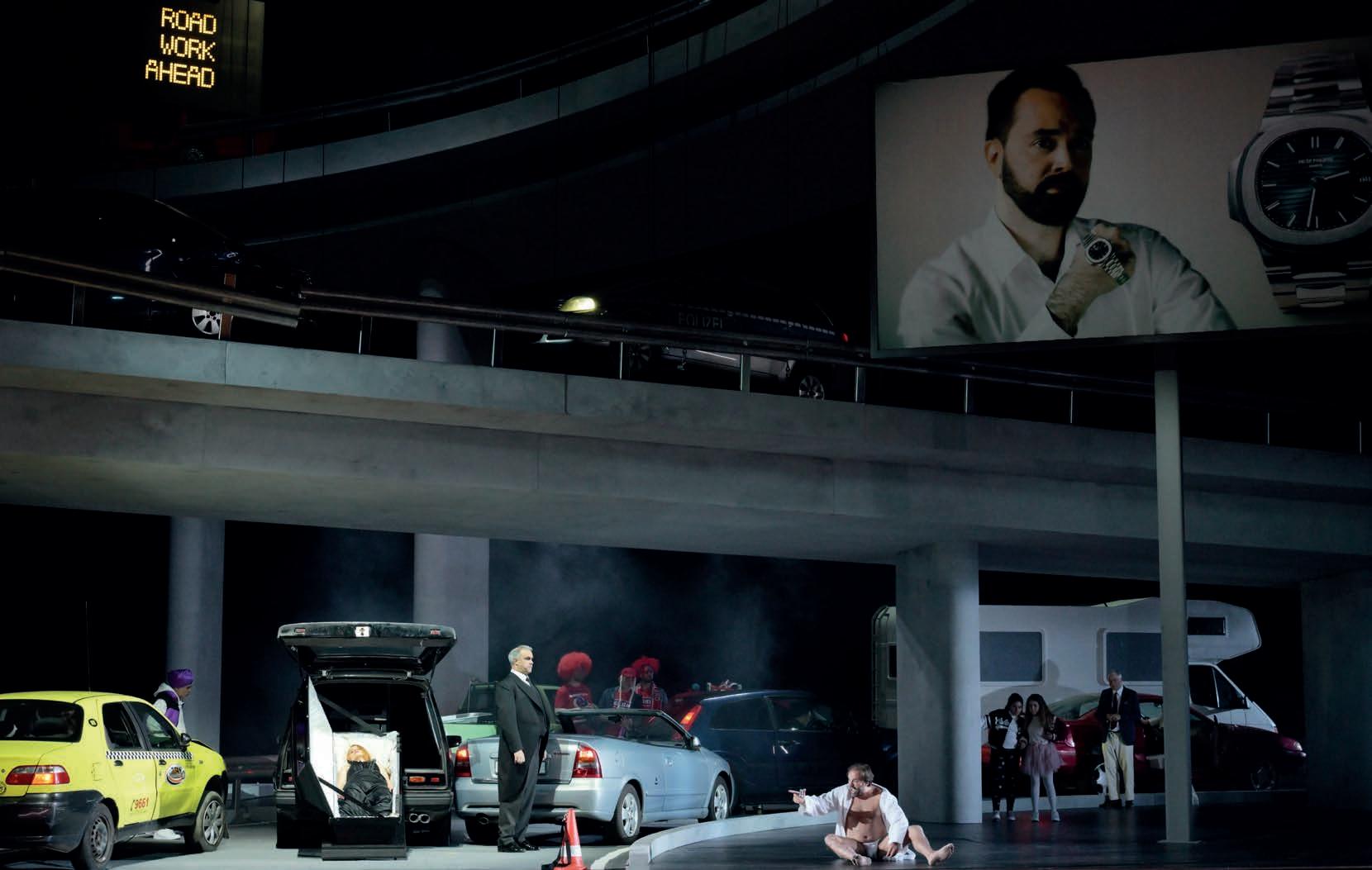
21 Jun 2024 | Venezia (I)
Gran Teatro La Fenice
Strauss, Richard Ariadne auf Naxos
Neue Bearbeitung 1916
Markus Stenz · Paul Curran · Gary McCann
21 Jun 2024 | Flumserberg (CH)
Tannenboden
St. Galler Festspiele
Henry Purcell
The Fairy Queen
edited by Michael Burden
Corinna Niemeyer · Anna Bernreitner · Sinfonieorchester St. Gallen
22 Jun 2024 | Dresden (D)
Staatsoperette
Kurt Weill
Die sieben Todsünden
Fassung für tiefe Frauenstimme (bearbeitet von Wilhelm BrücknerRüggeberg)
Peter Christian Feigel · Jörn-Felix
Alt · Sebastian Weber · Ballett der Staatsoperette · Alexandre Corazzola · Vanessa Rust
28 Jun 2024 | München (D) Nationaltheater (Bayerische Staatsoper)
György Ligeti
Le Grand Macabre
Kent Nagano · Krzysztof Warlikowski · Małgorzata Szczęśniak
29 Jun 2024 | Mainz (D)
Staatstheater, Großes Haus
Richard Strauss
Der Rosenkavalier
Daniel Montané · Georg Schmiedleitner · Stefan Brandtmayr · Cornelia Kraske
29 Jun 2024 | Stralsund (D)
Zoo (Theater Vorpommern)
Wilfried Hiller
Die Fabel von Filemon
Faltenreich oder Die Fußballweltmeisterschaft der Fliegen
Jörg Pitschmann · Sophiemarie
Won · Maude von Giese
Just in time for the European Championships at Stralsund
Zoo: Can flies play football against elephants?
Pünktlich zur Fußball-EM im Zoo von Stralsund: Können
Fliegen gegen Elefanten Fußball spielen?
6 Jul 2024 | Koblenz (D) Festung Ehrenbreitstein (Theater Koblenz)
Carl Orff
Carmina Burana
Reduzierte Fassung für Sopran, Tenor, Bariton, gemischten Chor, Knabenchor und Orchester
(„Carmina Burana / Pagliacci“)
Felix Pätzold · Markus Dietze · Christian Benz · Sascha Thomsen
13 Jul 2024 | Santa Fe, NM (USA)
The Santa Fe Opera
Gregory Spears
The Righteous
Jordan De Souza · Kevin Newbury · Mini Lien · Devario Simmons
World premiere
➥ see page / siehe Seite
26 Jul 2024 | Salzburg (A) Schauspielhaus
Salzburger Festspiele
Carl Orff
Die Kluge
Reduzierte Fassung für 15 Instrumentalisten
Anna Handler · Giulia Giammona · Selina Nowak
30 Jul 2024 | Stokenchurch (UK)
Garsington Opera
Andrew Norman
A Trip to the Moon
Chamber version in English language
Douglas Boyd · Karen Gillingham · Rhiannon Newman Brown
World premiere
➥ see page / siehe Seite
10 Aug 2024 | Rathen (D) Felsenbühne Rathen (Landesbühnen Sachsen)
Richard Wagner
Der fliegende Holländer
Richard-Wagner-Gesamtausgabe
Ekkehard Klemm · Kai Anne Schuhmacher · Ralph Zeger · Valerie Hirschmann
Revival
Tobias Picker is a composer of numerous works in every genre drawing performances by the world’s leading musicians, orchestras and opera houses. Picker’s operas have been commissioned by The Metropolitan Opera, San Francisco Opera, Santa Fe Opera, LA Opera, Dallas Opera and Opera Theatre Saint Louis. Most recently, his highly acclaimed world premiere Lili Elbe was performed at the St. Gallen Theatre in Switzerland. His orchestral music has been performed by major American orchestras including the New York Philharmonic, The Philadelphia Orchestra, the Chicago Symphony, and the Cleveland Orchestra, as well as the Munich Philharmonic, Zurich Tonhalle Orchestra, and at the BBC Proms. We send Tobias Picker our very best wishes on the occasion of his 70th birthday!
Tobias Picker umfangreiches Schaffen umfasst Werke aller Gattungen, die weltweit von führenden Solisten, Orchestern und Opernhäusern aufgeführt werden. Seine Opern komponierte er für die Metropolitan Opera New York, für die San Francisco Opera, für die Santa Fe Opera, die LA Opera und die Opernhäuser in Dallas und Saint Louis. Zuletzt kam seine viel beachtete Uraufführung Lili Elbe am Theater St. Gallen heraus. Pickers Orchestermusik wurde von den großen amerikanischen Orchestern aufgeführt, darunter das New York Philharmonic, das Philadelphia Orchestra, das Chicago Symphony und das Cleveland Orchestra sowie von den Münchner Philharmonikern, dem Tonhalle-Orchester Zürich und bei den BBC Proms.
Wir wünschen Tobias Picker alles Gute zu seinem 70. Geburtstag!

Leading UK composer John Casken’s music is intricately crafted, emotionally rich and saturated with vivid colour. Initial studies with John Joubert and Peter Dickinson were followed by a scholarship at the Academy of Music in Warsaw where he formed a close friendship with Witold Lutosławski. Influenced by legends, literature, visual arts and the beautiful landscapes of Northumberland where he lives, Casken’s internationally celebrated career encompasses concerti for the leading soloists of today, works for the stage, several BBC Proms commissions and a collection of distinctive choral music. Happy 75th birthday!
Die Musik des führenden britischen Komponisten John Casken ist kunstvoll ausgearbeitet, gefühlvoll und farbenfroh. Nach anfänglichen Studien bei John Joubert und Peter Dickinson folgte ein Stipendium an der Musikakademie in Warschau, wo Casken eine enge Freundschaft zu Witold Lutosławski knüpfte. Musikalische Inspiration findet der Komponist in Sagen, Literatur und bildender Kunst sowie in den wunderschönen Landschaften Northumberlands, seiner Heimat. Sein international gefeiertes Schaffen umfasst Konzerte für die führenden Solisten unserer Zeit, Werke für die Bühne, mehrere Aufträge durch die BBC Proms und eine Sammlung unverwechselbarer Chormusik. Wir wünschen alles Gute zum 75. Geburtstag!
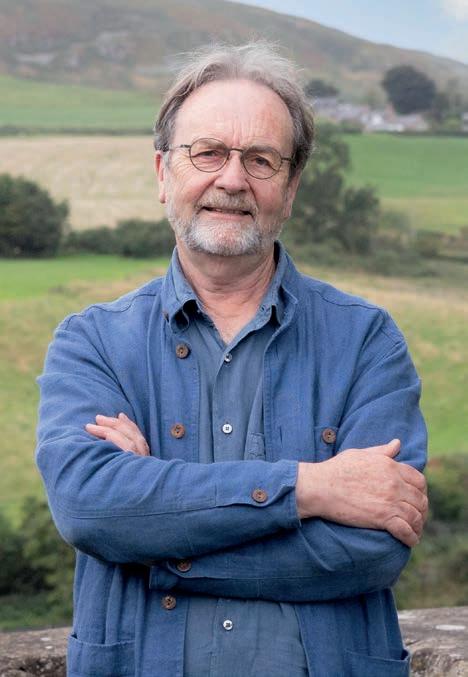
Herausgeber: Schott Music GmbH & Co. KG
Verantwortlich: Christopher Peter
Redaktion: Dr. Philipp Weber
Tel.: +49 6131 246-899 philipp.weber@schott-music.com
Mitarbeit: Dr. Joscha Schaback, Lea Wilms, Matthew Knight, James Joslin, Lauren Ishida, Norman Ryan, Yuki Yokota
Übersetzung: Lindsay ChalmersGerbracht
Design: Engler Schödel, Atelier für Gestaltung, Mainz
Layout und Satz: Stefan Weis, Mainz-Kastel
Redaktionsschluss: 15. April 2024
Druck: Plump Druck & Medien GmbH Rolandsecker Weg 33 53619 Rheinbreitbach · Germany
An der Finanzierung des Unternehmens wirtschaftlich beteiligt sind: Dr. Peter Hanser-Strecker, Strecker Stiftung Beteiligungs GmbH, Betina Alexander, Carina Alexander, Jan Baechle, Catalina Rid.
Contact us:
Schott Music GmbH & Co. KG Weihergarten 5 55116 Mainz · Germany
Tel.: +49 6131 246-886 infoservice@schott-music.com
Schott Music Ltd. 48 Great Marlborough Street
London W1F 7BB · United Kingdom
Tel.: +44 20 7534 0750 promotions@schott-music.com
Schott Music Corporation 156 Fifth Avenue, Suite 1208
New York, NY 10010 · USA
Tel.: +1 212 461 6940 ny@schott-music.com
Schott Music Co. Ltd. Hiratomi Bldg., 1-10-1 Uchikanda, Chiyoda-ku Tokyo 101-0047 · Japan
Tel.: +81 3 6695 2450 promotion@schottjapan.com
© Schott Music GmbH & Co. KG, Mainz
Printed in Germany


Katherine Balch
different gravities for piano trio 18’ ED 30451
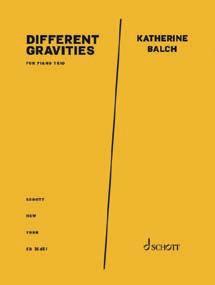
Douglas J. Cuomo
Slowly She Turns for violin and hand percussion 7’ ED 30439
Mary Finsterer
Until for 2 soprano saxophones 4’ ED 23739
Mary Finsterer
Ionia for saxophone quartet and 2 percussion 9’ ED 23738
Atsuhiko Gondai
Chorales without Words for viola and piano, op. 185 22’ SJ 1230
Heinz Holliger
Flüsterfuge und Zirkelkanon für 4 Bassklarinetten in B 9’ KLB 62
Heinz Holliger
Lieder ohne Worte Drei Stücke für Violoncello und Klavier 9’ CB 336
Toshio Hosokawa Musubi für Heinz Holliger zu seinem 80. Geburtstag für Oboe und Englischhorn 10’ SJ 1220
Pierre Jalbert
Voices from the Underground for violin, violoncello, alto saxophone, trombone, and percussion 30’ ED 30454
Pierre Jalbert Dream-Scherzo for clarinet in Bb, violin, violoncello, percussion, and harpsichord 11’ ED 30434
Nikolai Kapustin
Divertissement, op. 126 for violin, cello and piano 22’ ED 23383
Nikolai Kapustin
Divertissement, op. 91 for violin, cello and piano 22’ ED 23656
Han Lash String Quartet No. 2 20’ ED 30337
Fred Lerdahl Solitude for two pianos 5’ ED 30436

Lei Liang Six Seasons for any number of improvising musicians and prerecorded sounds 15’ ED 30437
Lei Liang Silk and Bamboo Concerto for flute (or bamboo flute) and string quartet 12’ ED 30440
Emile Naoumoff Sonata for flute and piano 11’ ZM36400
Carl Orff In trutina aus „Carmina Burana“ für Flöte solo und Flötenchor bearbeitet von Marcello Pedruzzi 3’ FTR 244
Valentin Silvestrov Mozart-Augenblicke für Violine, Violoncello und Klavier (Revidierte Fassung der „Fugitive Visions of Mozart“)
12’ BEL 445
Valentin Silvestrov Pastoralen für Violine, Violoncello und Klavier 20’ BEL 484
Pēteris Vasks Adagio aus Concerto no. 2 „Klātbūtne“ für Violoncello und Orgel bearbeitet von Ligita Sneibe (2019)
13’
ED 23557
Gavin Bryars Fifth Book of Madrigals (The ‘I Tatti’ Madrigals) for mixed voices (STTTBarB)
ED 13303
Chaya Czernowin Manoalchadia for two female voices and bass flute 13’ ED 21451
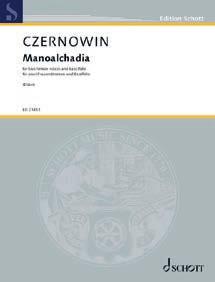
Dominique Le Gendre Three Songs for soprano and piano 5’ ED 14164
Toshio Hosokawa Three Love Songs for voice and alto saxophone 14’ SJ 1226

Pierre Jalbert Illumination for SATB chorus a cappella 3’
ED 30442
Han Lash Canticum Psalmi Falsum for mixed choir (SATB), harp, piano, and percussion 25’
ED 30408 (score and parts) ED 30408-01 (choral score)
Pēteris Vasks Trīs dziesmas (Drei Lieder / Three Songs) für Männerchor 10’ C 60189
Pēteris Vasks Trīs mīlas dziesmas (Drei Liebeslieder / Three Love Songs) für Sopran und Klavier 9’ ED 23530
Bohuslav Martinů Méditation für Violine und Orchester aus der Suite concertante (1. Fassung) herausgegeben von Jakub Junek 5’ ED 23602
Florence Beatrice Price Concert Overture No. 2 for orchestra 15’ ED 14115
Carl Maria von Weber Sonstige Klavierwerke zu zwei Händen herausgegeben von Markus Bandur WGA · Carl Maria von Weber – Sämtliche Werke WGA 1073 (Partitur und Kritischer Bericht)
Hans Werner Henze Discovering Henze 100 th Birthday 2026 (Eng./Ger.) KAT 3700-99

Hindemith-Institut, Frankfurt/Main
Hindemith-Jahrbuch, Band 52
Annales Hindemith 2023/ LII BN 164
Paul Sacher Stiftung Ligeti-Labyrinth Dokumente zum Schaffen György Ligetis, 1941–2001 herausgegeben von Anna Dalos, Márton Kerékfy und Heidy Zimmermann
PSB 1135 (dt.)
PSB 1137 (engl.)

REPERTOIRE
Gesänge nach Paul Éluard (frz.) für vierstimmigen gemischten Chor und Orchester
World Premiere:
25 Aug 1954 | Darmstadt (D) Internationale Ferienkurse für Neue Musik Darmstadt
Hermann Scherchen, conductor
Pablo Picasso’s mural Guernica (1937) is a powerful anti-war memorial. Luigi Nono’s cantata La Victoire de Guernica, based on Paul Eluard’s poem of the same name, was inspired by Picasso’s painting and shares its emotional intensity, reflecting Nono‘s belief in the importance of political expression in art. The sung and spoken text presents a poetic sequence of images depicting the events in Guernica and the hope for victory over fascism. The composer, who would have been 100 years old this year, also takes up this character in the formal and musical aspects of his work.
Pablo Picassos monumentales Wandgemälde Guernica (1937) ist ein Mahnmal gegen den Krieg. Luigi Nonos Kantate La Victoire de Guernica nach dem gleichnamigen Gedicht von Paul Eluard, das unter dem Eindruck des Picasso-Gemäldes entstand, hat einen ähnlichen Ausdruckswillen und entspricht Nonos Forderung nach einer politischen Stellungnahme der Kunst. Der gesungene und gesprochene Text beschreibt poetisch das Geschehen in Guernica und die Hoff nung auf den Sieg über den Faschismus. Der Komponist, der in diesem Jahr 100 Jahre alt geworden wäre, greift diesen appellativen Charakter auch formal-musikalisch in seinem Werk auf.